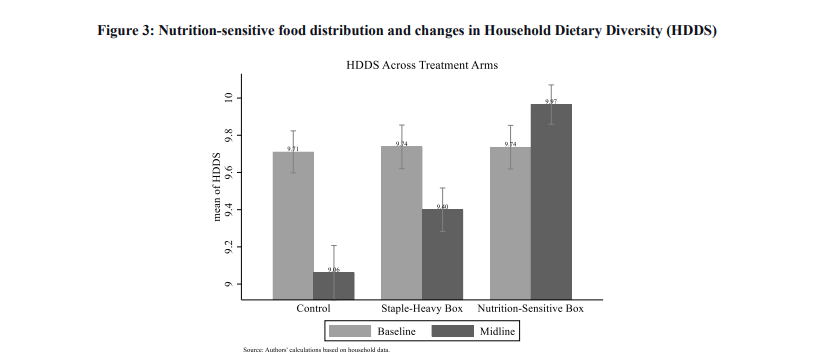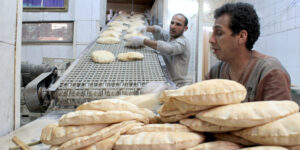Bread prices have long been a sensitive political issue in Egypt. In 1977, President Anwar Sadat cut the subsidies, triggering protests known as the “bread intifada”—ultimately forcing him to roll back his subsidy reform. In 2011, Egyptians took to the streets protesting the regime of President Hosni Mubarak with slogans calling for “bread, freedom, and social justice.” In 2017, Egyptian Ministry of Supply proposals to reduce the state-sponsored provision of bread from up to 4,000 to 500 loaves per bakery provoked large-scale protests across the country.
IFPRI Egypt Country Office
IFPRI INFO: Conversation - collaboration - community site
Highlights
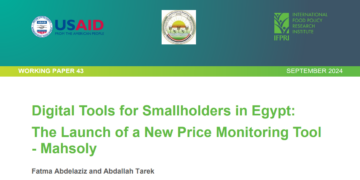
News
Digital tools for smallholders in Egypt: The launch of a new price monitoring tool – Mahsoly
The rapid adoption of mobile phones in agricultural and production systems provides an avenue to unlock the potential of digital innovations to transform smallholder agriculture in low- and middle-income countries. Previous research highlights how the adoption of digital tools can enhance farmers' profits and marketing outcomes by improving market efficiency through better supply and demand matching.
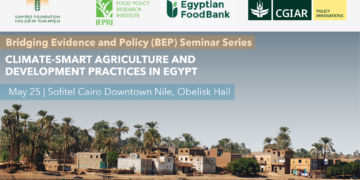
Events
BEP Seminar Series: Climate-smart agriculture and development practices in Egypt
Egypt stands at a critical juncture, facing significant environmental stresses exacerbated by climate change, despite being a relatively minor contributor[1] to global greenhouse gas emissions. The nation’s already hot and arid climate is experiencing increasing average temperatures, with projections indicating continued increases. Climate change significantly impacts Egypt’s agricultural sector[2], a vital contributor to the country’s GDP, foreign cash reserves, food security, and employment. Absent adaptation, rising temperatures, increased land salinity due to rising sea levels in the Nile Delta, limited surface water resources and rapid exploitation of groundwater resources will reduce agricultural productivity in the future.
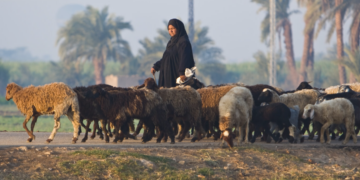
Arab FNS Blog
Egypt’s experience bridging cash transfers and an economic inclusion program for sustainable social protection
In 186 countries worldwide, cash transfer programs are the cornerstone of social protection, outnumbering social security or pension plans. These offer critical financial lifelines to vulnerable households, aiming to alleviate poverty by providing steady cash support. However, these programs can become long-term fiscal burdens for governments due to limited turnover of recipients, particularly when the programs do not lead to lasting reductions in poverty.
Who we are
IFPRI-Egypt is made up of globally renowned experts with extensive technical expertise in policy research, capacity strengthening and communication to … Get to know us
WHAT WE DO
What we do
We provide research-based policy solutions to sustainably reduce poverty and end hunger and malnutrition in the world. In order to support Egypt in … Discover our work
SIGN UP FOR OUR NEWSLETTER
Get the latest updates and information from the IFPRI Egypt Office
International Food Policy Research Institute
IFPRI is a CGIAR Research Center
IFPRI HEADQUARTERS
1201 Eye Street, NW
Washington, DC 20005-3915 USA
Phone: +1 202-862-5600 | Fax: +1 202-862-5606
Email to IFPRI
All IFPRI Offices
© 2025 COPYRIGHT AND FAIR USE | PRIVACY & COOKIE POLICY
IFPRI Egypt
Egypt Strategy Support Program
IFPRI in collaboration with ICARDA
2 Port Said Street, Victoria Square. Maadi, Cairo. Egypt
Phone: (+202) 23591144 | Fax: (+202) 23591143
Email: IFPRI-Egypt@cgiar.org

